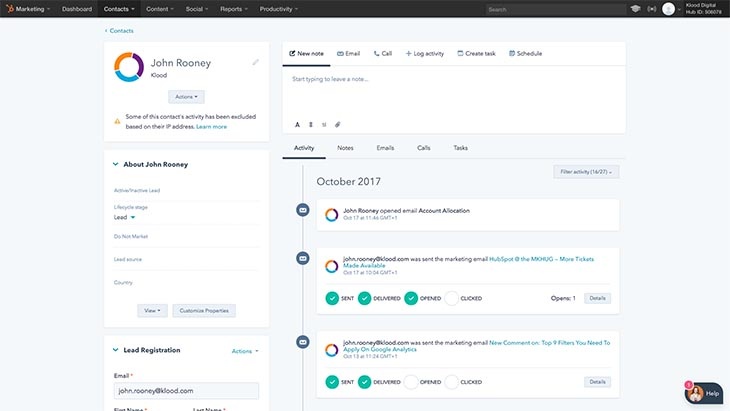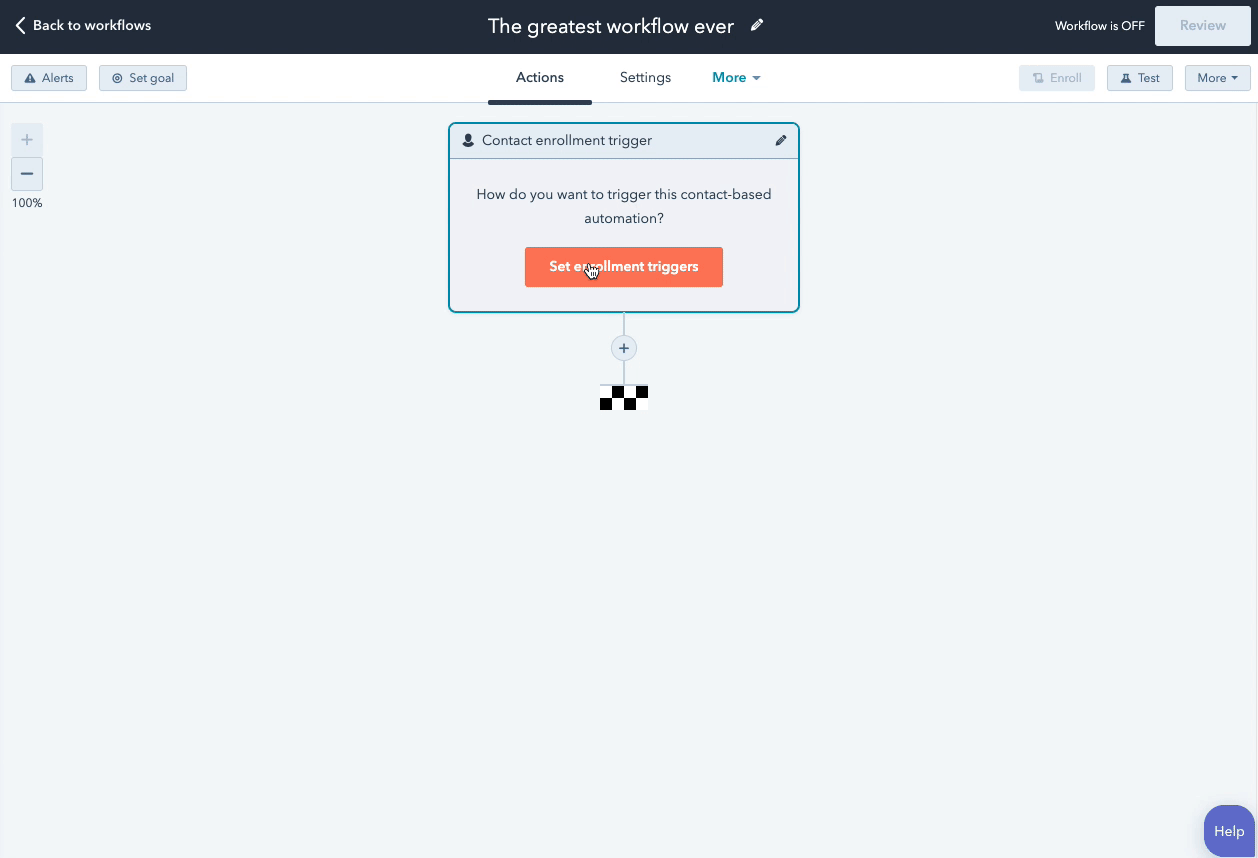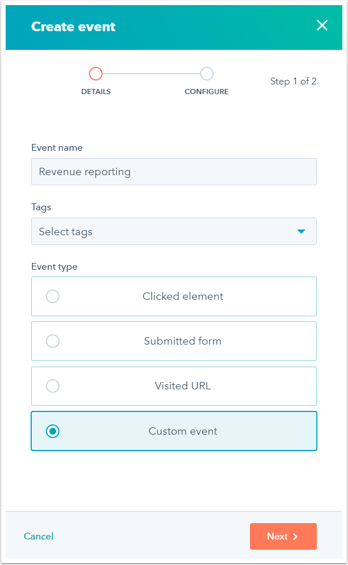It’s a Thursday afternoon, there’s coffee (hopefully) nearby and a blog deadline fast approaching.
Struggling to fill the gaps between your blog and that deadline, you turn to Google, a collection of new tabs in your browser and far fetched ideas about visiting a nearby fabric store, as a last resort in the search for new material.
Until you stumble upon a HubSpot blog post walking you through exactly what you were looking for.
The truth is, if you’re in marketing, sales or customer support, it’s pretty hard to find a keyword you’re searching for where a HubSpot link doesn’t show up on your first glance at the results.
That’s no accident either. Sure, their content strategy is the leading light for most marketers, but the truth is their community and audience is huge for good reason.
At last count, there were over 73,000 businesses worldwide actively using their HubSpot accounts.
It’s no wonder then that Trust Radius awarded the Boston founded software group with three of their ‘Top Rated’ awards across each marketing software categories for 2020.
So what does HubSpot actually offer?
For marketing and sales teams, there isn’t much that it doesn’t offer.
HubSpot has become our growth stack for good reason. Instead of us owning several different software subscriptions, we’re now able to deploy our marketing and sales strategies in one place.
Some of the key features on offer include:
- Marketing
- Email marketing
- Marketing automation
- Google & Facebook ad management
- Detailed website analytics
- Detailed contact activity
- Website optimisation tools such as A/B testing
- Industry-leading content management system including blogging, landing pages and social media accounts.
- Sales
- Dynamic and easy to use CRM
- Live chat and activity tracking
- Sales automations & task creations
- Detailed forecasting and reporting
- Customer support
- Ticketing and ticket tracking
- Support inboxes
- Video hosting
- Customer surveys
What does HubSpot do really well?
Free CRM:
Perhaps what HubSpot is most well known for, is it’s free CRM.
The entry point for most businesses, the CRM provides a dynamic solution for large and small businesses looking to:
- Organise their contact data
- Segment their customers and future prospects
- Create detailed sales reports and financial forecasts
And perhaps most importantly, it allows businesses to scale their process.
One of our favourite CRM features is the contact activity report below.

Knowing which of our contacts are engaging with our emails and website, informs both our sales and marketing strategies.
Marketing automation:
Ever wondered how many marketers it takes to screw in a lightbulb?
None, because we’ve automated it.
I fully understand if the bounce rate for this blog is rather high thanks to that, but it’s true.
We do love automating just about everything. Luckily, HubSpot allows us to do that, easily and effectively.
The Workflows feature, available with a ‘Marketing Pro’ or ‘Enterprise’ license, enables you to nurture your leads with the right email at the right stage of their journey, set up automated tasks for yourself or even a custom notification to internal stakeholders.
The best part? Building automations don’t require a team of developers coding away for hours.

Reporting:
When companies fail to see how effective a piece of software has been in achieving their business targets, chances are they won’t be using that software for much longer.
Luckily, HubSpot provides detailed and easy to understanding reporting tools, regardless of whether you’re on the free CRM or an Enterprise sales and marketing license.
The website analytics, for example, is tied directly to your CRM. Meaning you’re able to have contextual conversations with your leads, based on the areas of your website they’re engaging with the most.
As it’s tied into your CRM you’re also able to understand exactly which new contacts, leads or customers were driven from which web traffic source, providing you with a detailed dynamic overview of how your digital strategy is performing.
Another feature we love is ‘Event Tracking’.
Those familiar with Google Analytics will know that implementing event tracking on your website can often be far trickier than it seems, forcing you to rely on someone who is Js or HTML savvy an able to come to your rescue.

Luckily HubSpot’s ‘bookmarklet’ feature allows you to easily create a trackable event on your website, and monitor the performance directly from your HubSpot dashboard.
The difference HubSpot has made to our business.
It’s no secret that we’re big HubSpot fans.
That’s not without good reason, however. Since we implemented HubSpot for our own business we’ve been able to execute our own digital marketing strategy above expectations.
The dynamic reporting, contact and content management has allowed us to make informed decisions at key stages of our strategies thus far.
Take a look at our continued organic traffic growth for 2019 as an example:

Being able to see which keywords and blog topics were resonating best with our targeted buyer persona’s enabled us to effectively grow our organic traffic month on month.
So to answer the original question, is HubSpot really worth it?
Yes!
If you're looking for a way to supercharge your acquisition efforts, we have the perfect eBook to help you along your journey. Simply click the button below to get your copy.



